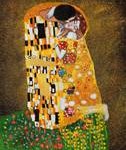Three Stages of Long Term Relationship
Relationship experts tell us that long-term relationships typically move through three distinct stages. First, we fall “In Love” and feel a kind of euphoria… We are “complete and content” when in the presence of our beloved. When the “neuro chemistry” of early love subsides, however, relationships enter the “power struggle” stage. In this stage, the real “work” of long-term relationship begins. The “reward” of doing “the work” in the power struggle stage is to enter into the third stage. Which is “mature love”.
In mature love, the relationship may not be as exciting all the time…but, in a larger sense, it is possible to fall in love all over again.
Problems In The “Power Struggle”
We have a big problem in the United States with our high rate of divorce. Current statistics put the percentage up to 60%, keeping in mind that this statistic takes into account people who have been married multiple times. So what goes wrong in all these marriages? One way to view it is that one or the other member of a couple simply don’t want to do the work involved in solving the “power struggle”. The work can be difficult, as it involves each member of the couple finding a way to maintain a separate identity while still being part of a couple. In our culture of “quick fixes” and assumptions that we should always be “happy”, it can be easier to just “exit” the relationship.
Our most common Relationship Exits
Individuals who are part of a “couple” have two ways to exit the relationship, when the going gets tough. First, they can just decide to live parallel lives in the same household. There can be an unspoken agreement that family life is like a “business”. In such an agreement, the tasks of child rearing and household maintenance are achieved in an arrangement of “lovelessness” between the couple. Love can be, and often is, abundant for the children, while resentment seethes beneath the surface in the relationship. Divorce sometimes happens when the kids leave home
Affairs….the More Dramatic Destructive Relationship Exit
Infidelity expert Esther Perel points out that affairs have been a part of the relationship landscape since the beginning of marriage. The betrayal can be insurmountable, of course, particularly when the “cheater” wants to leave the “cheatee” immediately in order to experience the hormonal “passion bath” of new relationship. Dr. Perel has worked with many women and men who are trying to rebuild a life after being on the recipient end of a “cheater”. She believes we underestimate the trauma involved in “love betrayal” Its literally one of the worst things that can happen to you, and can shake you to the very core of your being. Unfortunately, this type of betrayal has become so commonplace as to be minimized these days. We often hear, “Why can’t he/she just get “over it” and move on.?
Can There Be Hope…. After An Affair?
Contrary to popular belief, marriages can be rebuilt after an affair and even made stronger. Dr. Perel believes that its important to “reframe” the deeper meaning of the betrayal and begin to see it as an “expression of longing and loss”, …making the statement that an emotional connection has been broken in the relationship. The loss is felt by both the “cheater” and the “cheatee”…but for some reason it is acted upon by the “cheater”….maybe simply because of opportunity. Interestingly, affairs often happen in marriages after other, seemingly unrelated losses. Like job loss, early death of a child, or beloved grandparent. The affair can be an easy way to feel alive again.
Repair of Relationship After The Affair
Dr. Perel has a “formula” that she uses for relationship repair with her couples, which first and foremost involves the “affair perpetrator” taking full responsibility for the enormous harm he/she has done to his/her partner. This first step also involves compete severing of ties with the other party involved with the affair. Guilt and remorse must be repeatedly expressed…really for as long as it takes. Forgiveness can’t be forced, and may take a long time, but will come in its own time.
The “affair perpetrator” will need to reassure and express remorse for as long as it takes, but Dr. Perel believes that its also important that the one “cheated upon” give up the obsessive need to dwell upon the details of the affair. This need, although very common, can only bring torture to both parties, and actually gives more power to a “third” party than is helpful.
Investigative Questions
It is more helpful, in trying to repair a relationship after an affair to ask “investigative questions”. What was happening to “us” when the affair began? How were we both feeling? What was the disconnect? Interestingly, exploring these kinds of questions can reveal as much about the discontent of the “Cheated upon” as it does about the “Cheater”. Actually, probably no one was happy. That’s the truth, and now we both get to talk about it
How Long Does It Take?
There is no easy answer to this question. It depends on the extent of the betrayal and it “takes as long as it takes” to repair .The issue may come up again and again over the course of a relationship, and will always be a “fault line”. To be reworked again and again.
,










